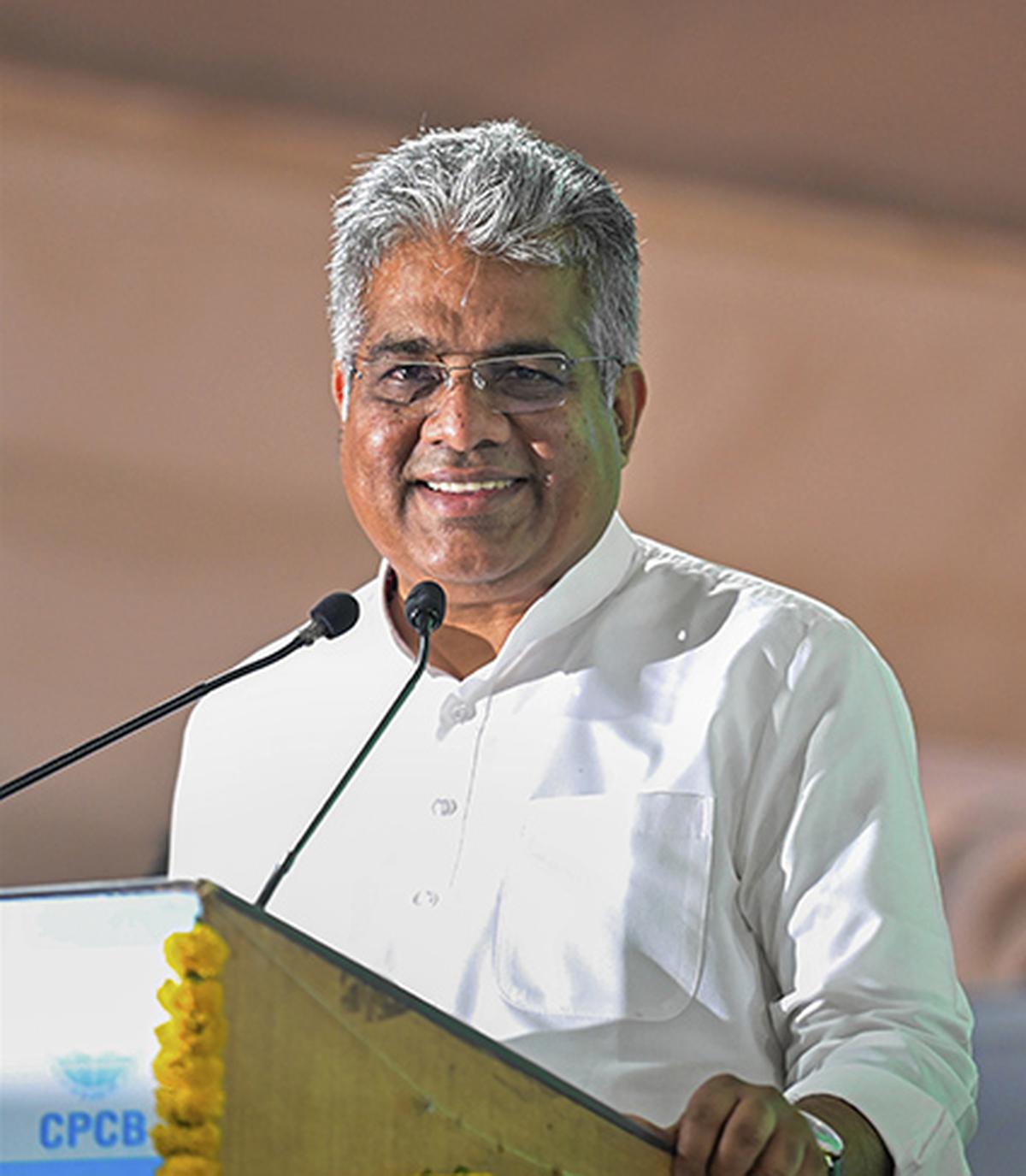
Climate finance scarce; early warning systems key to saving lives, livelihoods: Bhupender Yadav at COP27
The Hindu
Union Environment Minister Bhupender Yadav stressed that the global pace of climate mitigation is not enough to contain the rate of climate change
With climate finance still scarce, climate adaptation in the form of early warning dissemination is key to safeguarding lives and livelihoods from cascading natural hazards causing substantial losses around the world, Union Environment Minister Bhupender Yadav said at the U.N. Climate Conference (COP27) in Egypt on November 7.
Speaking at the U.N. Secretary General High Level Round Table to launch the "Early Warnings for All Executive Action Plan", Mr. Yadav stressed that the global pace of climate mitigation is not enough to contain the rate of climate change.
Read : COP27 | Climate networking
There is an urgent need to acknowledge the cascading natural hazards that cause substantial losses around the world, he said, adding that India fully supports the U.N secretary general's agenda to achieve "Early Warnings for All"..
With the intensification of tropical cyclones in the Pacific and the Caribbean, small tropical States have lost 200% of their national income in a few hours. Such instances could have devastating consequences in countries that do not have sufficient means to cope with them, Mr. Yadav said.
"With climate finance still scarce, climate adaptation in the form of early warning dissemination is key in safeguarding lives and livelihoods. 'Early Warnings For All' plays a part in not just containing the immediate physical impacts, but also mitigating the far-reaching, long-term socio-economic implications that follow," he added.
Mr. Yadav said India has been working on strengthening end-to-end early warning systems for all hydro-meteorological hazards.











